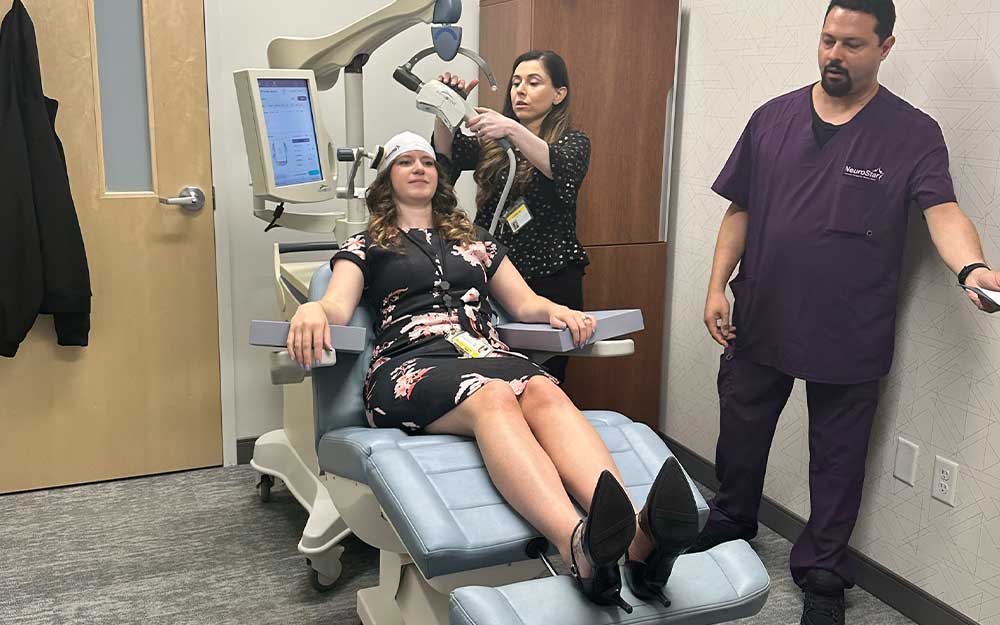
‘I cannot wait to help our patients get some relief’: Rogers team members get TMS training

Rogers team members recently got some hands-on training in transcranial magnetic stimulation (TMS), certifying them to assist in providing patients with the treatment.
TMS uses a specialized electromagnetic coil to produce targeted magnetic pulses that stimulate a portion of the brain often underactive in patients suffering from depression. It has been shown to reduce depressive symptoms, with about 50% of patients seeing a significant decrease in symptoms. Treatment requires short daily sessions over several weeks. It’s an option for those with major depressive disorder whose condition hasn’t improved with more traditional treatments, with evidence showing it can benefit even treatment-resistant patients.
The company that makes the NeuroStar technology used in TMS assisted with training the Rogers team at the end of June.
“I am very excited and honored to have been trained on the NeuroStar TMS chair,” Delaney says. “I researched TMS a lot in my undergraduate psychology degree and am so excited to be a part of something so promising. TMS treatment is a great non-invasive option that has shown major benefits for those struggling with treatment resistant depression. I cannot wait to help our patients get some relief from depression with this treatment option.”
“When it comes to mental health and substance use treatment, if we can offer just one more line of hope, it’s everything,” says Signa Meyers, vice president of strategic initiatives. “It can mean better families, better communities, and it can change lives. Hope is really everything, and TMS can provide that.”
Rogers is currently scheduling appointments for TMS at the West Allis clinic.





